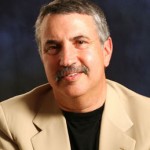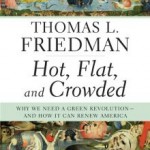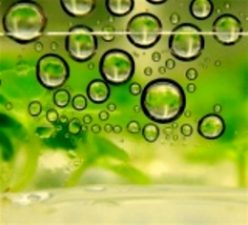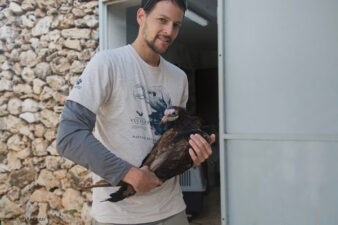The New York Time’s columnist Thomas Friedman presented his energy policy on The Daily Show yesterday, November 11, while promoting his book “Hot, Flat and Crowded: why we need a green revolution“:
Watch the video:
Tom Friedman: [. . .] A world where . . . energy technology – clean water, clean power – is going to be the next great global industry. And I believe the country that owns ET (Energy Technology) will have . . . the most energy security, national security, competitive industries, and global respect. That country has to be the United States of America. Because that’s going to be the next big thing.
Energy security? National security? Industries? and get this: GLOBAL R. E. S. P. E. C. T.! Why leave all those things for the US of A? These are things that Israel could desperately use. And we already have a head start: decades of leadership in clean water technology, renewable energy & efficiency technologies, solar power, water reclamation, efficient agriculture, and more – much of them covered by our prophets.
What else did Tom Friedman have to say?
Tom Friedman: The truth is, Jon, without a . . . carbon tax or gasoline tax . . . we’re not going to get what we need. Not a Manhattan Project, which is 12 people going off to Los Alamos to try to solve this problem, but what we need is a market signal that will get 100,000 people in 100,000 garages trying 100,000 things . . . 2 of which are going to be the next green Google and green Microsoft.
Jon Stewart: . . . why aren’t there guys in garages doing this now?
Tom Friedman: That’s really actually a very important question.
Jon Stewart: It is?!? you know what? let me take it back.
Tom Friedman: The reason is . . . that the problem with clean energy technology is that it’s always competing with an existing cheap dirty alternative. . . . If you don’t have the government leveling the playing field . . . it’s going to take a very long time to make that transition.
Stealing . . . well, um. . . recycling a page from Friedman’s book, Israel needs to develop an energy policy that will level the playing field, and make it more expensive to use fossil fuels. A carbon tax (and here) is one of the most widely accepted ideas. As explained in the New York Times,
The idea is that polluters should pay for the environmental damage they cause. Slap a tax on carbon, the theory goes, and you will get fewer carbon emissions, more revenue for government and energy independence, all at the same time. No wonder people from both sides of the political divide have come out in support of it.
The challenge is, explains Friedman, that the politics interfere with creating a policy. The strong lobby groups are the oil, power, refinery and agriculture lobbies – in Israel as in the US – so the policies tend to reflect their interests rather than a way to promote alternatives. There are some hopeful signs, like the subsidy given by Israel ministry of infrastructure to solar photovoltaic energy. But overall, Israel has neither a climate change policy, nor an energy policy, so we can expect a continuing challenge to develop new cleantech and implement it in Israel.
However, according to Friedman, the payoffs can be great enough to earn us an Aretha Franklin hit,
R. E. S. P. E. C. T.!
Links:
Thomas Friedman interviews on the Daily Show
Successful carbon tax in Denmark






